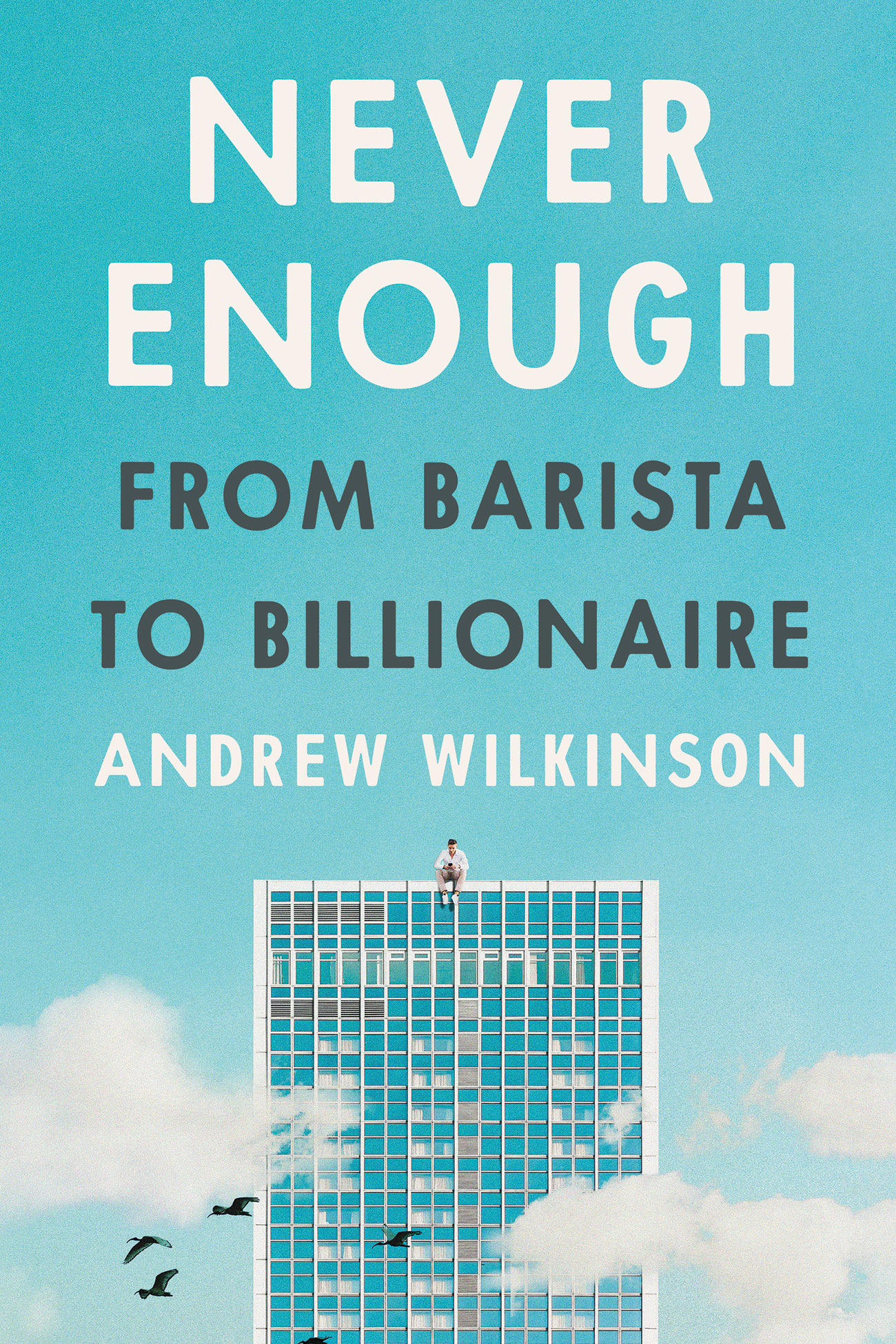
Never Enough: Why You Don't Want to Be a Billionaire
Andrew Wilkinson
About the Author

Andrew Wilkinson
Questions & Answers
Andrew Wilkinson's journey from a barista to a billionaire is a story of relentless ambition, trial and error, and profound personal growth. Starting with a desire to escape his family's financial struggles, Wilkinson's initial ventures were fueled by a passion for making money and a relentless work ethic. His early success with MetaLab, a web design agency, was followed by a series of entrepreneurial attempts, some successful and others not, including a failed cat furniture business.
Throughout his journey, Wilkinson grapples with the concept of "enough" and the paradox of wealth. Despite accumulating significant wealth, he experiences a lack of fulfillment, leading him to question the purpose of his success. This introspection leads him to adopt Warren Buffett's investment philosophy, focusing on acquiring businesses with strong moats and ethical management teams.
Wilkinson's transformation is marked by his decision to join The Giving Pledge, committing to give away the majority of his wealth. This reflects a broader theme of personal growth, as Wilkinson moves from a focus on accumulating wealth to a desire to make a positive impact on the world. His journey underscores the importance of ambition, the pursuit of success, and the quest for personal fulfillment, ultimately leading to a more meaningful and purpose-driven life.
Wilkinson's experience with MetaLab and its sale to Dribbble vividly illustrates the multifaceted challenges of entrepreneurship. Leadership-wise, Wilkinson's initial hands-on approach, while effective in the early stages, became unsustainable as the company grew. His realization that he needed to step back and delegate, epitomized by his "Lazy Leadership" philosophy, was crucial for MetaLab's survival and growth. Management complexities were evident in the challenges of hiring and maintaining a team, as well as navigating the demands of clients and the market. Wilkinson's personal ambition to start new businesses often overshadowed the well-being of MetaLab's employees and clients, leading to burnout and stress. The sale to Dribbble, while a financial success, also highlighted the importance of aligning personal goals with the company's needs, as Wilkinson's desire to focus on new ventures sometimes detracted from MetaLab's stability. This experience underscores the delicate balance entrepreneurs must maintain between personal ambition and the health of their company.
Wilkinson gains profound insights from studying Warren Buffett and Charlie Munger's investment philosophies. He learns the importance of focusing on high-quality businesses with strong competitive advantages (moats), intelligent and ethical management, and fair prices. This leads him to focus on acquiring profitable businesses rather than starting from scratch. He also adopts their hands-off approach, allowing CEOs to run their companies independently. These insights influence his business by prioritizing simplicity, profitability, and long-term growth. In personal wealth management, he decides to sign The Giving Pledge, committing to give away the majority of his wealth to charitable causes, reflecting Buffett's belief in using wealth for the greater good.
Wilkinson's exploration of "enough" challenges traditional notions of success by highlighting the pursuit of happiness beyond material wealth. He emphasizes the idea that wealth doesn't equate to happiness, and that the desire for more wealth can lead to a never-ending cycle of dissatisfaction. His experiences teach readers that:
- Balance is Key: Wealth should be a means to an end, not the end itself. It's important to find a balance between wealth accumulation and enjoying life's simple pleasures.
- Meaningful Relationships: Wealth can strain relationships, and maintaining meaningful connections is crucial for a fulfilling life.
- Philanthropy: Sharing wealth can bring immense satisfaction and contribute positively to society.
- Learning from Failure: Mistakes are inevitable, but they are valuable learning experiences that can lead to growth and success.
- Self-Reflection: Regularly assessing one's goals and values is essential to ensure that wealth accumulation aligns with personal fulfillment.
Philanthropy is central to Wilkinson's life and business, serving as a means to address the anxiety and emptiness he experienced despite his success. His commitment to The Giving Pledge reflects his values of humility, gratitude, and social responsibility. By promising to give away the majority of his wealth, Wilkinson aims to improve the lives of those less fortunate, emphasizing that wealth should be used to benefit society. His actions, including supporting early employees and his family, demonstrate his belief in recognizing and rewarding contributions, and his desire to resolve past family issues. Wilkinson's approach to philanthropy aligns with his vision of becoming an "anti-billionaire," intentionally reducing his wealth to focus on its impact rather than its accumulation. This reflects his belief in the importance of using wealth for the greater good, transcending personal success.